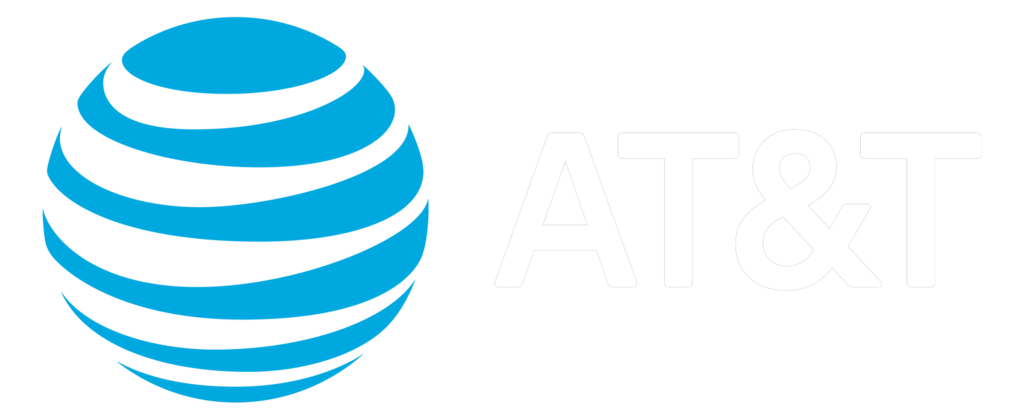Launching a startup demands not only a groundbreaking idea but also the expertise to connect that idea with the right audience. Many founders wear multiple hats, juggling product development, operations, and customer support before recognizing that marketing requires dedicated focus. Understanding when to hire a marketing agency can make the difference between plateauing traction and sustainable growth.
Deciding the right moment to outsource marketing hinges on your startup’s unique journey. This post outlines growth stages, common obstacles, and clear signals that professional support can amplify your reach. By following these insights, you’ll learn when partnering with experts becomes a strategic accelerator rather than an expense.
Recognizing Your Startup’s Growth Stage
Every startup moves through phases that demand different resources. Pinpointing your current stage helps you decide if in-house efforts suffice or if external expertise will drive faster results.
Seed Stage: Laying the Groundwork
- You focus on validating your product and understanding your ideal user through early testing and feedback. You build basic messaging and simple campaigns to gauge initial interest. Moving too fast into paid channels without a solid foundation often wastes budget and time.
- At this stage, you might lack the data to optimize complex strategies. An agency can guide foundational research and craft clear brand positioning. Their experience helps you avoid rookie mistakes and establish metrics that matter.
Product-Market Fit: Scaling Outreach
- Once users consistently engage and convert, your priority shifts to expanding awareness beyond early adopters. Scaling organic channels can stall if internal bandwidth is limited or expertise is shallow. An agency brings tested playbooks to launch multi-channel campaigns and track performance.
- You’ll require more sophisticated tools and analytics to refine messaging and target lookalike audiences. Agencies often have access to premium platforms and industry benchmarks, reducing your trial-and-error cycle. They streamline data analysis to ensure every dollar drives momentum.
Expansion Stage: Accelerating Growth
- At this point, you’ve proven demand and need to capture market share before competitors catch up. When you hire a marketing agency, it helps you launch integrated strategies, from paid ads to content syndication. Their cross-functional teams coordinate efforts and maintain consistency across channels.
- Agencies manage complex calendars and stakeholder collaboration, freeing your team to focus on product improvements. Their project management discipline ensures deadlines are met and campaigns deploy smoothly, minimizing costly delays.
Facing Common Startup Challenges
Marketing a young venture presents hurdles beyond budget constraints. Identifying persistent pain points clarifies whether external support will deliver better returns.
Limited Resources
- With small teams, specialists are rare, and founders often juggle roles far outside their expertise. Task saturation leads to fragmented focus and uneven campaign execution. Partnering with an agency plugs skill gaps and ensures full-time attention to your marketing goals.
- Agencies provide scalable talent—designers, copywriters, analysts—without payroll overhead. They adapt quickly to changing requirements and launch initiatives that might otherwise languish. This flexibility helps you experiment faster while maintaining quality.
Lack of Expertise
- Effective marketing demands knowledge of trends, tools, and best practices that evolve rapidly. In-house generalists can struggle to keep pace with shifting algorithms and consumer behaviors. Agencies invest in continuous learning and bring up-to-date insights from multiple clients.
- They offer strategic counsel on messaging, channel mix, and conversion optimization based on proven frameworks. This institutional knowledge often surpasses the ad hoc efforts of a lean team, driving higher engagement and lower acquisition costs.
Saturated Market
- When your vertical brims with competitors, cutting through the noise demands refined tactics and creative differentiation. DIY campaigns may blend into the background without expert guidance. Agencies conduct thorough competitor audits and design standout campaigns that resonate.
- They leverage A/B testing at scale, adjusting visuals, copy, and targeting to find the optimal combination. These data-driven approaches shorten learning curves and maximize impact amid fierce competition.
Signs You Should Hire External Experts
Even with committed teams, certain signals indicate that professional marketing support can transform stagnation into expansion.
When Internal Efforts Plateau
- You notice diminishing returns on existing channels despite sustained effort. If consistent experimentation fails to unlock new growth, it’s time to invite fresh ideas and proven methodologies.
- A specialized agency injects creative momentum and access to industry-leading tactics, revitalizing campaigns. They diagnose bottlenecks and deploy targeted solutions to reignite forward motion.
- Your in-house team struggles to generate leads and acquire new customers consistently, limiting momentum. An external partner brings fresh lead-generation frameworks and focuses on conversion paths that scale effectively.
When Campaigns Underperform
- Persistent low click-through or conversion rates despite repeated optimizations signal a need for deeper expertise. Agencies perform comprehensive audits, uncovering overlooked factors in audience alignment or messaging.
- They apply rigorous testing protocols and leverage audience segmentation to tailor campaigns with pinpoint accuracy. This data-driven approach reduces wasted spend and elevates overall performance.
When Opportunity Costs Mount
- Every hour your core team spends managing ads and content is an hour taken from product improvements or customer success initiatives. These opportunity costs accumulate quickly, eroding long-term value.
- Delegating marketing operations to an agency frees your team to focus on strategic priorities that directly influence your product roadmap. This division of labor accelerates both development and market penetration.
- If your startup aims to grow brand presence in Charlotte, NC, but lacks local insights, an agency can bridge the gap with area-specific campaigns. Their regional expertise ensures your messaging resonates culturally and geographically.
Budgeting for Agency Fees
Allocating funds effectively determines whether agency partnerships yield sustainable ROI. Establish a realistic budget before engaging in proposals.
Setting a Realistic Budget
- Review past marketing spend and outcomes to estimate a reasonable baseline for agency fees. Benchmark against similar startups or industry standards to avoid overcommitting capital.
- Prioritize services that align with your immediate goals—brand building, lead generation, or performance marketing—to focus resources efficiently. Delineating must-have and nice-to-have services ensures clarity during negotiations.
Weighing Cost vs Benefit
- Consider the expected uplift in metrics like customer acquisition cost, lifetime value, and brand awareness against the agency’s fee structure. Conduct simple forecasts to visualize break-even points and potential profits.
- Factor in the savings from not hiring full-time specialists, software licenses, and training. A compelling cost-benefit analysis helps justify the investment to stakeholders and investors.
Planning for Long-Term Investment
- Treat agency partnerships as multi-quarter engagements rather than one-off projects. This horizon allows agencies to iterate on strategies, refine targeting, and compound results over time.
- Build in regular review points every quarter to assess performance, adjust budgets, and realign priorities. Open dialogues with your agency foster transparency and keep expectations realistic.
Choosing the Right Agency
Finding an agency that complements your startup’s culture and objectives maximizes collaboration and results.
Aligning Expertise
- Seek agencies with proven experience in your industry or growth phase. Relevant case studies and client testimonials reveal their proficiency and potential fit.
- Evaluate their proposed strategies for creativity, data orientation, and scalability. Ensure their playbooks match your vision for brand voice and campaign approach.
Cultural Fit
- A successful partnership thrives on shared values and communication style. Gauge responsiveness, transparency, and willingness to learn about your product and audience.
- Conduct introductory workshops or pilot projects to observe how the agency integrates with your team’s workflow. These low-commitment trials reveal working dynamics and collaboration.
Budget Considerations
- Compare pricing models—retainer, project-based, or performance-linked—and choose one that aligns with your cash flow and risk tolerance. Transparent fee structures prevent billing surprises.
- Negotiate scope and deliverables clearly, documenting milestones and responsibilities. A well-defined statement of work sets expectations and safeguards both parties.
Preparing for a Smooth Collaboration
Maximize your agency’s impact by laying the groundwork for effective teamwork from day one.
Define Clear Goals
- Establish specific, measurable objectives—lead targets, engagement rates, or brand lift metrics—that guide campaign planning. Clarity on goals ensures every tactic contributes to overarching outcomes.
- Share historical data, buyer personas, and product roadmaps to provide context and fuel strategic planning. The more information you supply, the faster the agency can craft tailored initiatives.
Establish Key Performance Indicators
- Agree on KPIs that reflect both short-term wins and long-term growth. Include metrics for awareness, consideration, and conversion to capture the full customer journey impact.
- Set up regular reporting cadences—weekly dashboards, monthly reviews, and quarterly deep dives—to monitor progress and pivot swiftly when needed.
Foster Open Communication
- Designate primary contacts on both sides for rapid decision-making and issue resolution. Clear lines of communication reduce misunderstandings and maintain momentum.
- Use shared tools—project management platforms, Slack channels, or collaborative documents—to centralize feedback, asset sharing, and timeline tracking. This transparency keeps everyone on the same page.
Measuring Impact and ROI
Continual assessment keeps campaigns optimized and demonstrates the tangible value of your agency partnership.
Tracking Key Metrics
- Monitor core indicators such as cost per lead, customer acquisition cost, and return on ad spend. Consistent tracking reveals trends and anomalies early.
- Integrate analytics tools—Google Analytics, CRM dashboards, or custom BI solutions—for unified data visibility and streamlined reporting.
Evaluating Campaign Performance
- Conduct post-campaign analyses to identify winning creatives, messages, and channels. Agencies should present insights and clear recommendations for future iterations.
- Compare actual outcomes against initial forecasts to validate assumptions and refine budget allocations accordingly.
Adjusting Strategy Quickly
- Use real-time data to refine targeting, tweak ad copy, or reallocate spend mid-campaign. Agility prevents wasted budget and captures emerging opportunities.
- Schedule quarterly strategy workshops to reassess goals, refresh creative themes, and explore new growth avenues. A dynamic roadmap keeps marketing efforts aligned with evolving business needs.
Position Your Startup for Smarter, Faster Growth
When hiring a marketing agency, choosing the right moment involves assessing your startup’s growth phase, acknowledging internal limitations, and recognizing clear performance signals. By setting realistic budgets, vetting partners carefully, and establishing transparent collaboration processes, you’ll position your venture for accelerated growth and lasting impact.
Ready to amplify your startup’s reach and convert traction into tangible results? Contact the RevoLusion Consultants Inc. team today to explore how a dedicated marketing partner can help you navigate growth stages, overcome challenges, and achieve your most ambitious goals.


